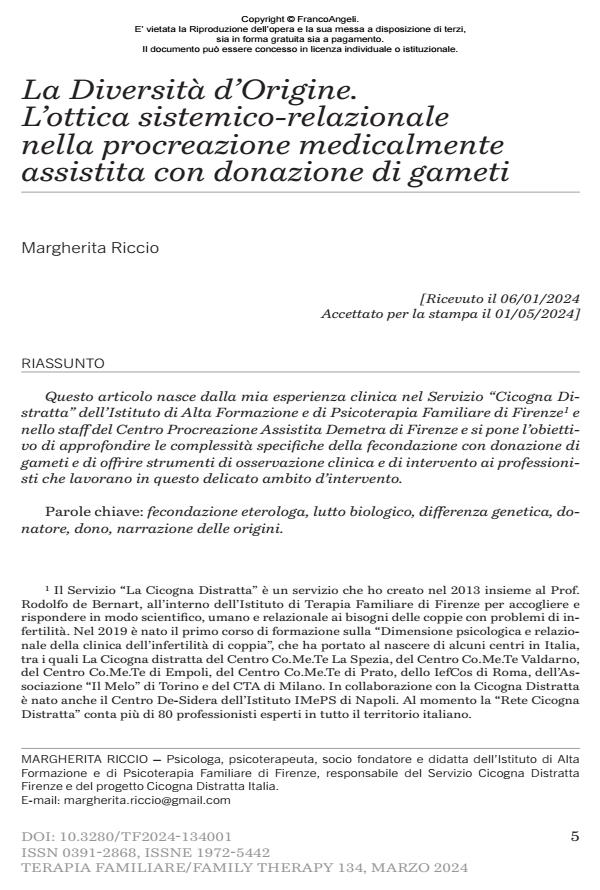Diversity of Origin. The systemic-relational perspective in procreation medically assisted with gamete donation.
Journal title TERAPIA FAMILIARE
Author/s Margherita Riccio
Publishing Year 2024 Issue 2024/134
Language Italian Pages 11 P. 5-15 File size 601 KB
DOI 10.3280/TF2024-134001
DOI is like a bar code for intellectual property: to have more infomation
click here
Below, you can see the article first page
If you want to buy this article in PDF format, you can do it, following the instructions to buy download credits

FrancoAngeli is member of Publishers International Linking Association, Inc (PILA), a not-for-profit association which run the CrossRef service enabling links to and from online scholarly content.
This article arises from my clinical experience in the “Distracted Stork” Service of the Institute of Higher Education and Family Psychotherapy in Florence and in the staff of the Demetra Assisted Procreation Center in Florence and aims to delve deeper into the specific complexities of fertilization with donation of gametes and to offer clinical observation and intervention tools to professionals working in this delicate area of intervention.
Keywords: Heterologous fertilization, biological mourning, genetic difference, donor, gift, narration of origins
Margherita Riccio, La Diversità d’Origine. L’ottica sistemico-relazionale nella procreazione medicalmente assistita con donazione di gameti in "TERAPIA FAMILIARE" 134/2024, pp 5-15, DOI: 10.3280/TF2024-134001